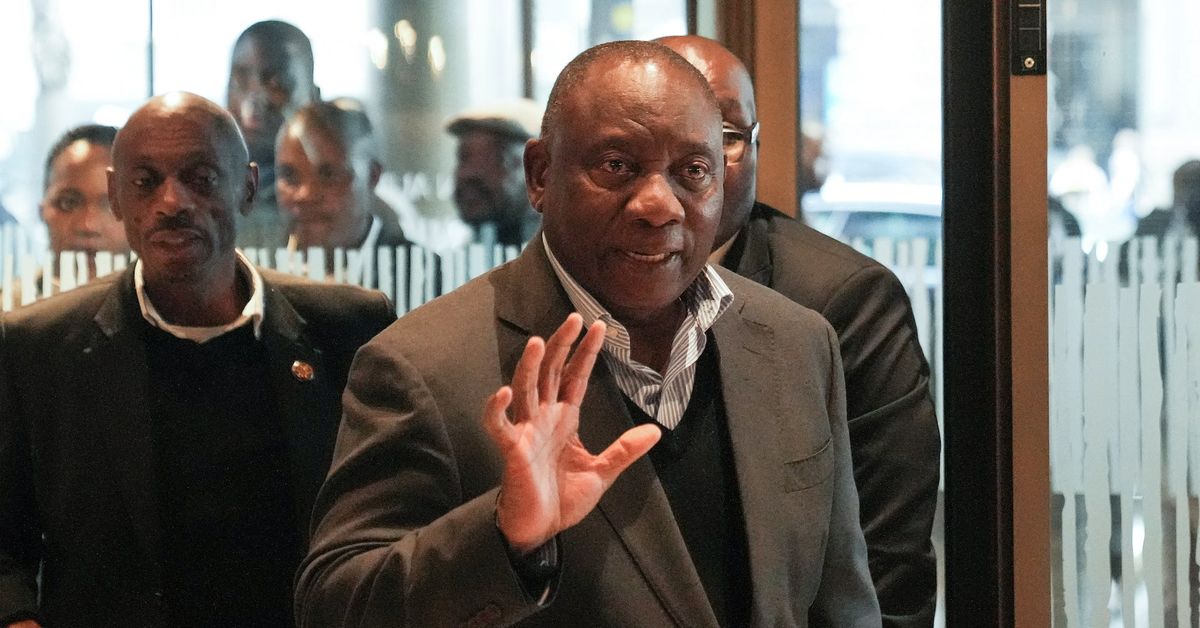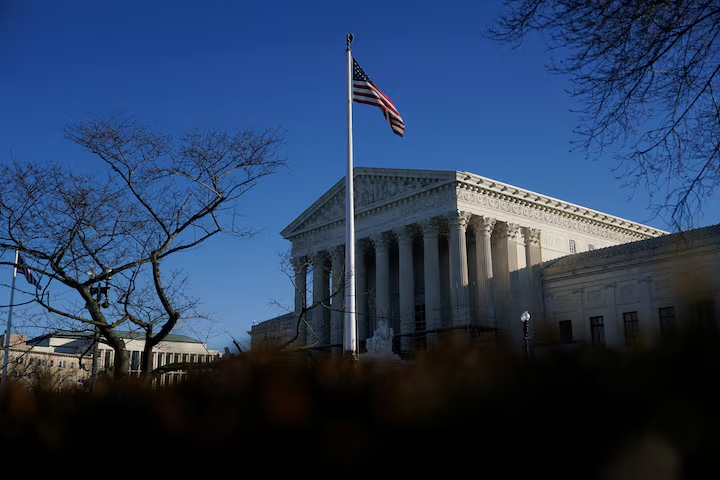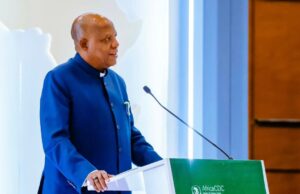
Cyril Ramaphosa was set on Friday to be re-elected as South Africa’s president, having brokered a deal with the opposition for a government of national unity after his African National Congress’s worst election result since the end of apartheid.
A skilful negotiator, Ramaphosa clinched a deal with the opposition, white-led Democratic Alliance and at least two other smaller parties, according to DA and other party officials, as the National Assembly held its first sitting since the election and prepared to elect a head of state.
That will allow him to stay on as president and survive – at least for now – the huge drop in support for the ANC when it lost its parliamentary majority in the May 29 election.
But Ramaphosa, 71, emerged weakened from the vote, and some political analysts have questioned whether he will be able to serve a full second five-year term.
The ANC won just 40% of the vote, meaning Nelson Mandela’s legacy liberation movement has had to negotiate a power-sharing agreement with rival parties for the first time in 30 years.
As parliament convened on Friday, the DA said it had signed a deal for a unity government with the ANC. The socially conservative Inkatha Freedom Party and the right-wing Patriotic Alliance had previously confirmed that they would also join the coalition.
Details of the deal were still unclear, aside from that the DA would receive the position of deputy speaker of parliament.
The ANC still has the largest number of seats in the National Assembly, but Ramaphosa may have to make significant policy concessions to political adversaries or cede senior cabinet positions.
After the vote, former union leader-turned-businessman Ramaphosa – Mandela’s lead negotiator in talks to end apartheid – received the backing of top ANC officials to stay on.
But his party is deeply divided, and some of Ramaphosa’s party rivals may not have buried the hatchet for long.
Ramaphosa’s future as president had hung in the balance before. A panel report found in 2022 that he may have committed misconduct over a stash of cash stuffed into furniture at his game farm.
He denied wrongdoing over that scandal, dubbed “Farmgate”, and won a new five-year term as ANC leader later that year.
But last month’s election, in which the ANC’s vote share slumped because of voter anger over issues such as high unemployment, crime and crippling power cuts, could pose an even bigger challenge.
Ramaphosa was elected ANC leader in late 2017 on a pledge to clean up the party’s image and revitalise the economy after nine years of scandal, sleaze and economic decline under his predecessor, Jacob Zuma.






